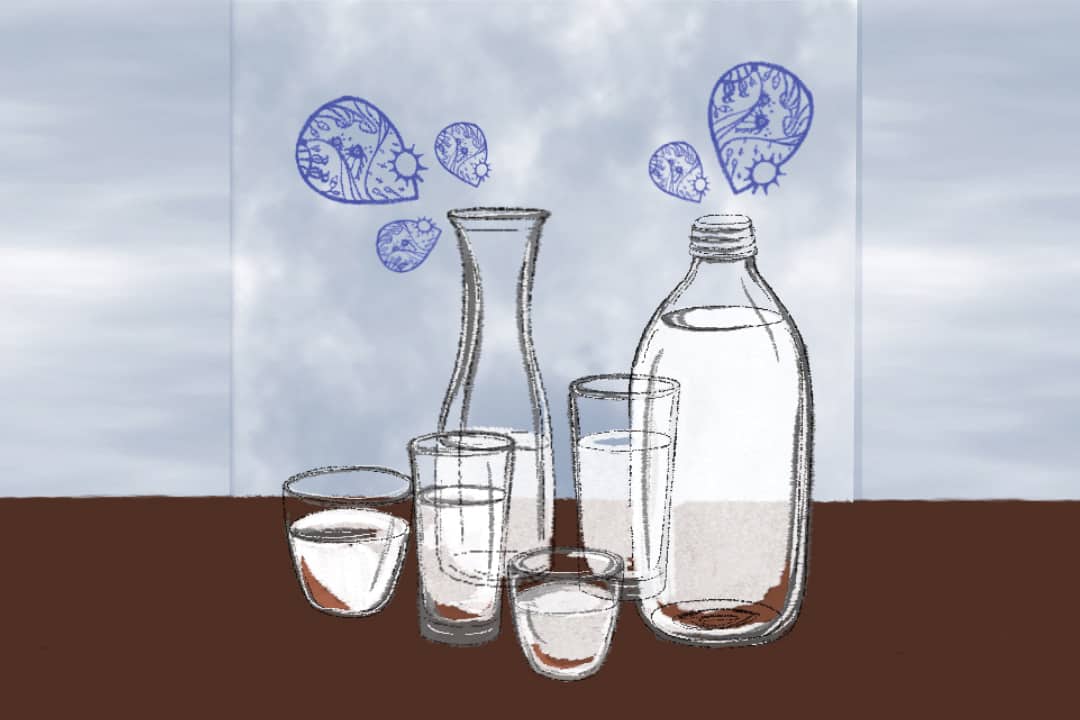On March 24, UTM’s Indigenous Centre hosted a virtual “Lunch & Learn,” featuring presenter Lorena Garvey, an Anishinaabe consultant and educator.
Garvey’s presentation discussed the importance of ‘nibi.’ Nibi means water in Anishinaabemowin, an Indigenous language whose speakers generally range from Manitoba to Québec. Nibi was given to us by Mother Earth, and Garvey described it as “an element that is connected to all beings on this earth.” Garvey’s presentation combined our connections with Nibi to different initiatives we can participate in to protect it.
The event was held in honour of World Water Day, which is celebrated annually on March 22. The day is an annual United Nations Observance, and raises awareness about the two billion people who are currently living without access to safe water around the world. As Garvey pointed out, many Indigenous communities struggle with clean water advisories: as of March 22, 29 Indigenous reserves in Canada were under long-term drinking water advisories. On 11 of those reserves, cases had remained unresolved for over a decade.
Garvey challenged the assumption that the lack of safe water in Indigenous communities is because Indigenous peoples live too far north of the city to access the necessary infrastructure. She highlighted that many reserves in southern, urban areas of Ontario have drinking water advisories. For example, the Oneida Nation of the Thames is an Indigenous reserve which is home to over 2,000 residents. The community, located a mere 30 kilometers from London, ON, has been under a boil-water advisory since 2019.
Only this month, the Lake Huron Water Supply System management board voted unanimously to connect Oneida Nation of the Thames to their water supply system. The decision made the community the first London-area Indigenous reserve to join one of the region’s two water supply systems.
Garvey also highlighted how the importance of water is also emphasized through global advocacy initiatives. The sixth goal of the United Nations’ Sustainable Development Goals — adopted to ensure that all global citizens enjoy “peace and prosperity” — is to achieve universal and equitable access to safe drinking water for everyone by 2030. Not only does this goal emphasize the importance of preserving our planet’s water, but the concrete date of 2030 emphasizes that this change must be achieved for ourselves in the present rather than for future generations.
There are also many Indigenous initiatives designed to conserve our world’s water. For example, Garvey discussed Josephine Mandamin, an activist from Wiikwemkoong Unceded Territory on Manitoulin Island. In 2003, Mandamin and a group of Anishinaabe women started the Mother Earth Water Walk, an event which brought women together to raise awareness about the sacredness of the water. According to Garvey, Mandamin’s final walk, which took place in 2017, was over 8,000 kilometres.
Mandamin’s great-niece, Autumn Peltier, is also an Anishinaabe water rights advocate. In 2016, when she was 12, Peltier challenged Justin Trudeau’s lack of action about the water crisis during the winter meeting of the Assembly of First Nations, telling him: “I am very unhappy with the choices you’ve made.”
In 2019, Peltier was made Chief Water Commissioner by the Anishinabek Nation. She was nominated for the International Children’s Peace Prize three times for her activism.
Garvey also emphasized the importance of our personal respect for water. She emphasized that honouring water can be as simple as “[going] to your nearest river or stream or pond and talking to it.” It could also be as simple as telling family and friends about ways to reduce their environmental footprint.
Garvey shared that she and her partner put a glass of water on their balcony every full moon. They place sweetgrass in the water, tobacco around it, and let it sit out in the light. In the morning, they take a drink, knowing that the water will give them good luck in the coming month.
Ultimately, Garvey’s talk was about understanding that water is a key component of our world. Approximately 75 per cent of our bodies are made of water. When we drink it, it sustains us and all the living creatures on Earth.
Moreover, Garvey explained that in some Indigenous cultures, water is a living spirit that feels your respect and love for it. We must treat it with this respect to preserve it for our survival and our planet’s survival — because, as Garvey said, “[Water] is what connects all of us.”


